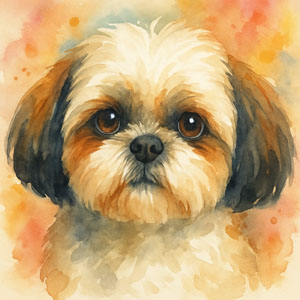— Henry Ward Beecher

A dog of pure joy, the shih tzu (pronounced “sheed‑zoo”) is known as the “lion dog” in Chinese. Bred in Asia as far back as ancient times, the chrysanthemum‑faced companion was treasured by Tibetan Buddhists and offered as gifts to the imperial court of China.
“Histories are more full of examples of the fidelity of dogs than of friends,” observed Alexander Pope. In the Manchu Dynasty (1644–1911), the shih tzu — with silky double coat, plume tail, and regal bearing — held an honored place, symbolizing power and good luck. So beloved were these dogs that the ancient Chinese refused to sell or give them away.
Known for affectionate hearts and playful spirits, the breed is a devoted companion. The first shih tzu arrived in the United States in 1938.
And shih tzus make the best pets. I should know. My shih tzu, Clapton, is the best dog in the world. “A dog,” said Martin Buxbaum, “wags its tail with its heart.”
Companion animals can ease loneliness and reduce stress; even thirty minutes a week of animal‑assisted time can lift spirits in long‑term care. As writer Robert Louis Stevenson mused, “You think dogs will not be in Heaven? I tell you, they will be there long before any of us.”
 Love me, love my dog. 🐾
Love me, love my dog. 🐾
